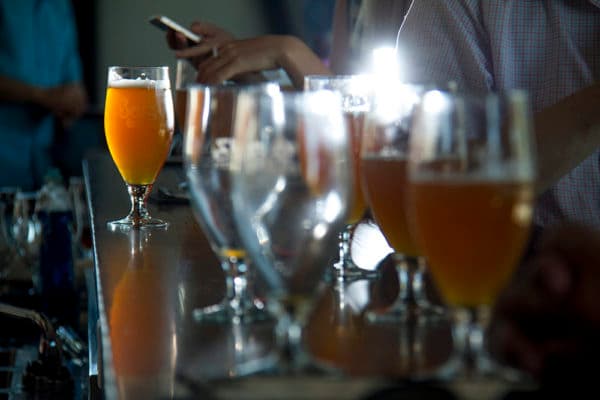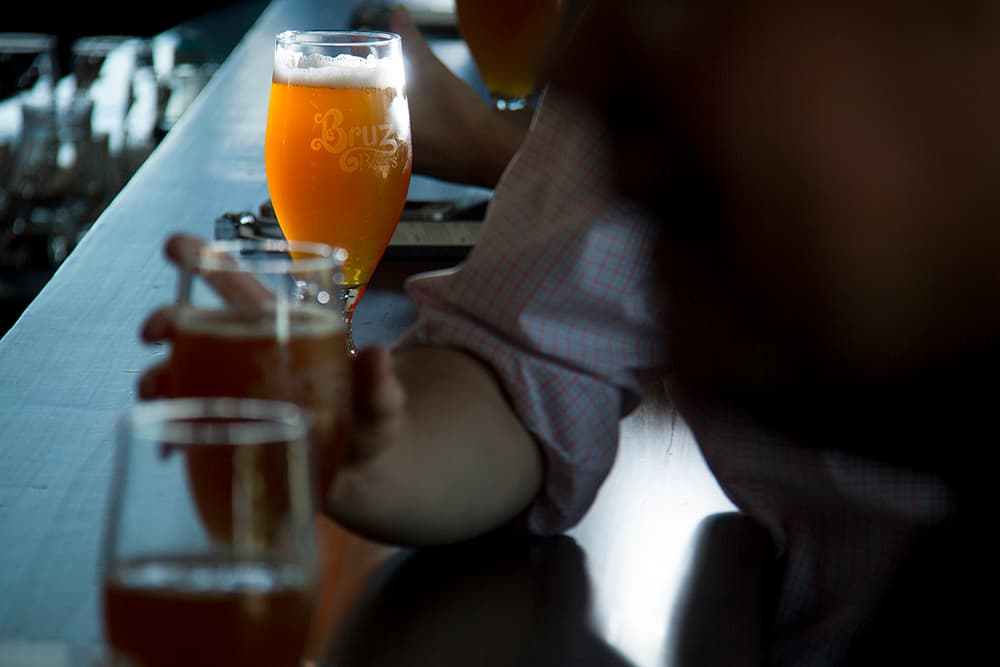
When Breckenridge Brewery sold to Anheuser-Busch last year, the company didn't think it was shifting from craft to corporate.
But nearly overnight some beer lovers and brewers stopped seeing Breckenridge Brewery as Colorado's third-oldest craft brewer and started seeing the Denver-based company as another attack on small beer makers from the world's largest brewer.
Breck's changed role in Colorado's beer scene is so important that 14 craft brewers -- including Colorado's four largest producers -- cited acquisitions like it as one of three reasons for breaking away from the Colorado Brewers Guild, the state's primary association for brewers, and starting a new group.
"With the changing landscape of craft where multinational brewers are buying craft brewers and blurring the line, (the guild's) by-laws and articles of incorporation don't reflect what we believe to be membership's wishes," reads the letter sent this month from the new group to the guild.
The group going by Craft Beer Colorado includes representation from Great Divide Brewing Co., Left Hand Brewing Co., New Belgium Brewing Co., Odell Brewing Co. and Oskar Blues Brewery.
The brewers are looking for a more proactive approach to brewery-related rules and regulation than the Colorado Brewers Guild has historically provided as well as a more transparent leadership than the guild offers, according to the letter.
The third and final "core issue" listed for forming the new organization dealt with what role Breckenridge Brewery should play in the guild.
Breckenridge Brewery president Todd Usry sits on Colorado Brewers Guild's board and the association is in the midst of deciding whether to change Breck to be a non-voting member of the guild. An election on the matter runs through June.
"Regarding Todd Usry's post on the board of directors for the CBG, Todd's term on the board ends in July, and the CBG is in the process of electing a candidate to replace him," said Terry Usry, spokeswoman for Breckenridge Brewery.
Terry Usry said many people are pointing to Breckenridge Brewery's ownership as the cause for the split, but in reality the new group is the result of disagreements about leadership.
The guild recently made the decision to have a full-time executive director and chose John Carlson to fill that role. The decision was unanimous, but a few days later, two members had second thoughts.
"Prior to the vote, the board unanimously agreed to remain united behind the decision," Usry said. "Unfortunately, days after the vote, two directors who supported the alternative candidate resigned and left CBG to form a competing organization."
It remains to be seen what roles the Colorado Brewers Guild and Craft Beer Colorado will have in shaping the state's beer scene and policies.
There's also a possibility some brewers may become or remain members of both organizations.
"Working with one unified voice and one main state guild is most common, and all 50 states plus Washington, D.C., have guilds," said Julia Herz, a spokeswoman at the Boulder-based Brewers Association.
The association is "a voice for small and independent craft brewers." Under the organization's definition, Breckenridge Brewery is no longer considered a maker of craft beer.
"AB InBev and MillerCoors are not small brewers," Herz said. "If a brewery is purchased by them, that brewery would no longer be included in our annual data set for craft brewers."
The issue of whether a brewery is craft or not isn't just of importance to trade groups and industry insiders, said Paul Gatza, executive director of the Brewers Association.
"A majority -- 61 percent -- of craft beer drinkers feel it is important that their beer comes from a small and independent craft brewer," Gatza said. "The large brewers have become adept at hiding the parent company behind brands they own, and we are learning that more beer drinkers are using their smartphones when looking for information about beers."
The Brewers Association tries to keep its definition of breweries simple.
- A restaurant-brewery that sells 25 percent or more of its beer on site is considered a brewpub.
- Those brewing up to 15,000 barrels annually are considered microbreweries. Examples in Denver include Alpine Dog Brewing Co. and TRVE Brewing Co.
- Regional brewers put out 15,000 to 6 million barrels each year. Great Divide Brewing Co. falls into that category.
- Breweries like Coors Brewing Co. that produce 6 million or more barrels in a year are large brewers and no longer considered craft.
Bars, liquor stores and other carriers of beer aren't as concerned about the size of a brewery, said Bryce Kopperud, director of marketing at High Country Beverage.
"When picking a supplier, size and scale matter to a certain degree," Kopperud said. But taste is more important.
High Country Beverage is an alcohol distributor in Northern Colorado and the Western Slope. The company lists MillerCoors-owned Blue Moon Brewing Co. alongside New Belgium in its craft portfolio. And legally, there's no problem with Blue Moon calling itself craft.
Craft brewing is more about style than volume and ownership, Kopperud said.
"Craft brewers have the mentality of thinking small and creatively," he said. "We like that."
Business & data reporter Adrian D. Garcia can be reached via email at [email protected] or twitter.com/adriandgarcia.














